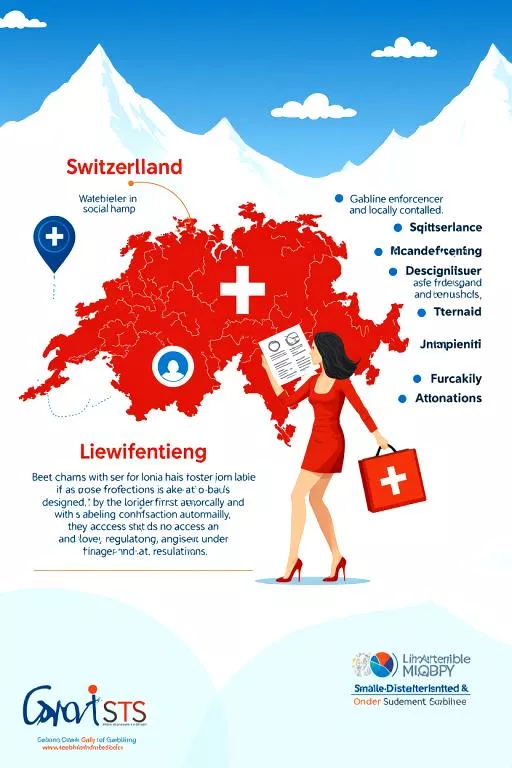Switzerland maintains one of the most tightly regulated online gambling markets in Europe. Since the implementation of the Federal Act on Money Games in 2019, the country has set strict rules that define who can legally operate online gambling platforms—and who can’t.
Only Local Operators Are Legal
Under current Swiss law, only casinos that already hold a land-based license are allowed to offer online gambling services. These licenses are not open to international or foreign providers. This means online platforms must be operated by established Swiss casinos, and they must meet a range of legal and technical requirements to maintain compliance.
As of 2025, twelve Swiss casinos have received official approval to operate online. These licenses are valid for 20 years and include newly authorized regions such as Lausanne and Winterthur. Well-known operators like Swiss Casinos and Grand Casino Luzern now run robust online platforms that offer slot machines, live dealer games, and table games like poker and blackjack.
Strict Enforcement Measures
The Swiss authorities—led by regulators such as the Federal Gaming Board and GESPA—actively monitor and enforce the rules. One of the most aggressive tools at their disposal is a continually updated blacklist of unauthorized gambling sites . These sites are blocked through collaboration with internet service providers.
By mid-2025, this list had grown to include more than 2,500 illegal online casinos, all blocked at the DNS level. The Swiss Supreme Court has backed these blocking measures, stating that foreign operators must take steps to prevent Swiss players from accessing their platforms.
Player Protection at the Forefront
Online gambling in Switzerland is not just about control—it’s also about player safety. Platforms must enforce features like self-exclusion tools, deposit limits, time limits, and reality checks. All players must be verified through identity documentation, and anti-money laundering (AML) rules apply to all transactions, particularly those exceeding CHF 4,000 per day.
Additionally, Switzerland now has a cross-border exclusion agreement with Liechtenstein. If a player is banned in one country, that ban automatically applies to the other. This joint protection policy is aimed at minimizing gambling addiction and social harm.
Conclusion
Switzerland’s online gambling landscape is designed to be safe, limited, and locally controlled. With strong enforcement, a player-first approach, and no access to foreign sites, Swiss residents can engage in digital gambling under strict but clear regulations.

